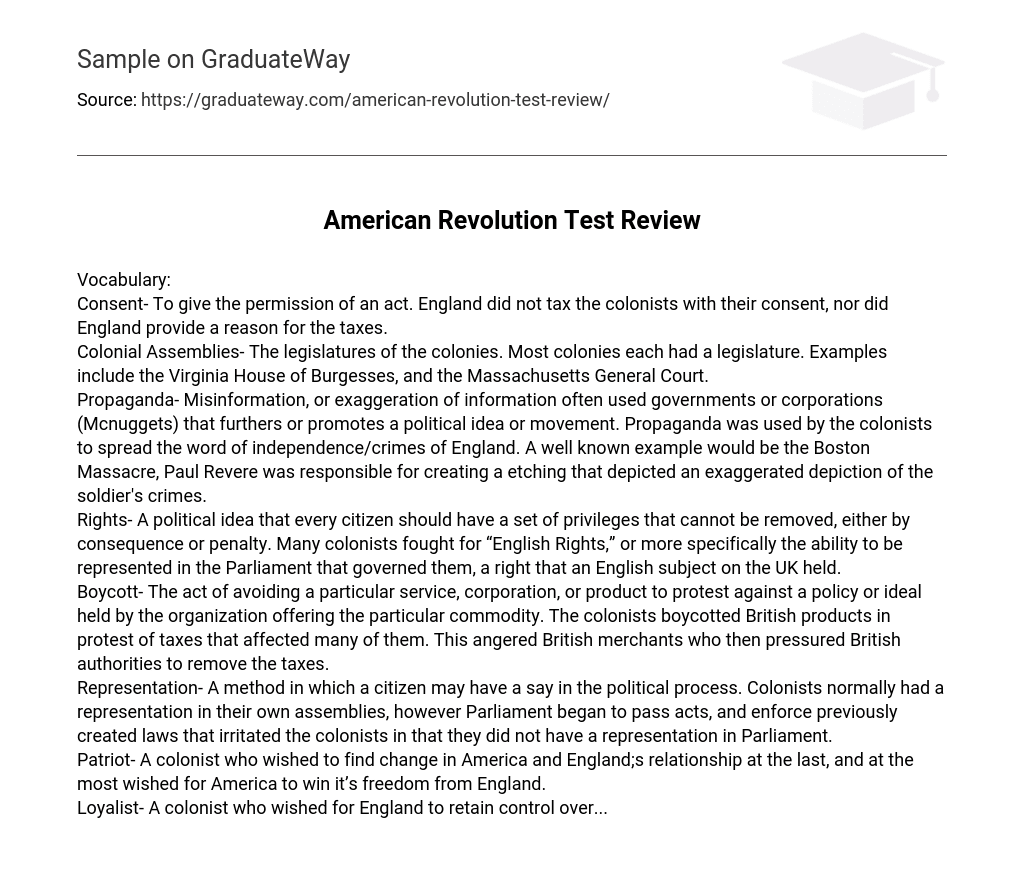Consent- To give the permission of an act. England did not tax the colonists with their consent, nor did England provide a reason for the taxes.
Colonial Assemblies- The legislatures of the colonies. Most colonies each had a legislature. Examples include the Virginia House of Burgesses, and the Massachusetts General Court. Propaganda- Misinformation, or exaggeration of information often used governments or corporations (Mcnuggets) that furthers or promotes a political idea or movement. Propaganda was used by the colonists to spread the word of independence/crimes of England. A well known example would be the Boston Massacre, Paul Revere was responsible for creating a etching that depicted an exaggerated depiction of the soldier’s crimes. Rights- A political idea that every citizen should have a set of privileges that cannot be removed, either by consequence or penalty. Many colonists fought for “English Rights,” or more specifically the ability to be represented in the Parliament that governed them, a right that an English subject on the UK held.
Boycott- The act of avoiding a particular service, corporation, or product to protest against a policy or ideal held by the organization offering the particular commodity. The colonists boycotted British products in protest of taxes that affected many of them. This angered British merchants who then pressured British authorities to remove the taxes. Representation- A method in which a citizen may have a say in the political process. Colonists normally had a representation in their own assemblies, however Parliament began to pass acts, and enforce previously created laws that irritated the colonists in that they did not have a representation in Parliament. Patriot- A colonist who wished to find change in America and England;s relationship at the last, and at the most wished for America to win it’s freedom from England. Loyalist- A colonist who wished for England to retain control over…





